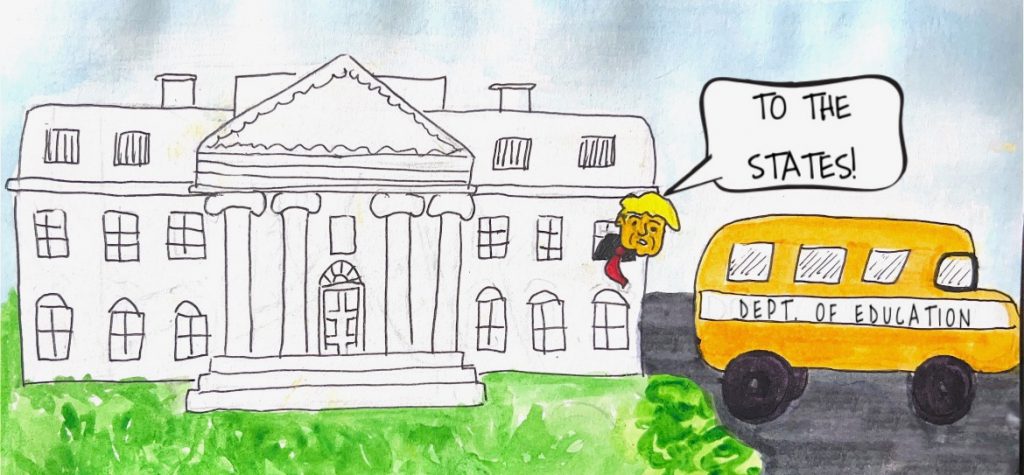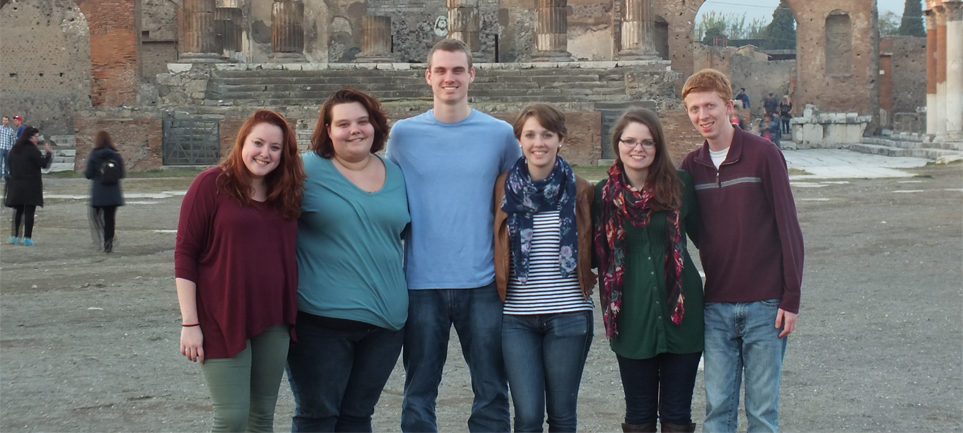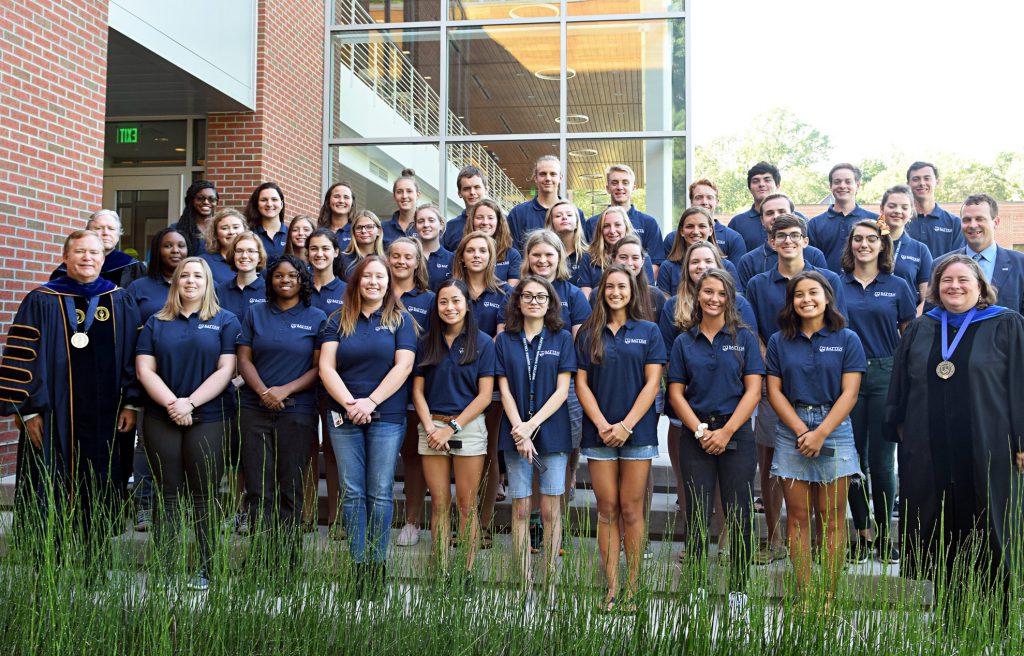The 2018-19 winter session marked the first in Wesleyan’s history to require freshmen to enroll. From Jan. 3 to Jan. 25, students trekked across campus to learn about topics varying from the history of pirates (HIST 250) to disability in the media (REC 219-01). Over sixty courses were offered, including online classes. Some of the most popular courses, nominated through enrollments greater than 30 students, included “Science of Zombies” (BIO 199), “Why Harry Potter?” (HUM 261) and “Service Learning and Issues of Civic Engagement” (INST 124-01).
In a previous statement to the Marlin Chronicle, Provost Timothy O’Rourke said that a mandatory winter session would “improve [freshman] academic performance, improve retention.” Improving the freshman retention rate was the driving force behind the mandatory winter session, as Provost O’Rourke said that Wesleyan lost roughly a third of its freshmen between their first and second years. “Improving or reducing that attrition has been a major goal, and I think that with a mandatory winter session, we will reduce it,” O’Rourke said.
O’Rourke did not definitively state that the long gap (nearly six weeks) between fall and spring semester was the reason for the loss of freshmen, but rather that winter session was one component of a larger problem.
However, Vice President for Enrollment David Waggoner said that those numbers were incorrect. President Miller later corroborated this in his Feb. 4 nota bene that stated, “eighty-six percent of our ‘First Years’ have returned in 2019, a four percent increase from last year.”
This 82 percent retention rate is a marked improvement from the contended 60 percent reported last year, although it is notable that Provost O’Rourke specifically spoke of freshmen while President Miller included all ‘First Years’ in his estimate.
After a request for clarification, President Miller stated that the term ‘First Year’ describes any “first time, full-time student” at Wesleyan, regardless of freshman status. He also said that 90 of the 350 ‘First Year’ students who arrived in Fall 2018 had already earned college credits, thus potentially advancing them to sophomore status. Transfer, evening and weekend, non-degree seeking and online enrollment students were not included in the estimates. President Miller did not address the discrepancy in data beyond this.
When freshman Lara Spencer was notified of the new requirement to take a winter session course, she decided to use it as an opportunity to fulfill one of her general education requirements. She enrolled in ART 350-02: Handpainted Photos and Collages with Professor Sharon Swift, which satisfies the ‘Aesthetic’ requirement.
She described the course as “fun” and “one of the most stress-free of all the classes.” Her favorite part of the class was experimenting with powdered pastels. “I would definitely recommend that art class,” Spencer said.
But “bittersweet” was the word she used to describe her first winter session as a whole.
“I mean, I really [liked] taking the class but it’s also kind of annoying,” Spencer said. She cited the added financial cost and early return to Wesleyan as frustrating for both herself and her parents, and added that she would most likely not be taking another winter session course.
However, she did enjoy the extra activities offered, such as the movie nights and basketball games. She also agreed that the current setup – one class over three weeks – worked well.
The required winter session did not affect her decision to return to Wesleyan for the spring semester. Instead, she said it was the friendly atmosphere and effort to engage students that convinced her to stay. “Wesleyan’s really the school for me,” Spencer said.
Allison Churchman is only a sophomore, but she’s already well-versed in winter session. Her freshman year she enrolled in HIST 262: History of European Cities: Berlin. She enrolled in the same course this winter session and traveled to Prague. The annual course is taught by Dr. Sara Sewell.
Sewell’s “walking tours” were a highlight of the class, according to Churchman, as was Prague’s “detailed architecture.” “It’s just so pretty,” Churchman said.
Churchman said her favorite site was Prague Castle. “It’s the biggest thing I’ve probably ever been in,” Churchman said. “It’s huge. You just never see anything that big.”
Though Churchman said she “highly recommended” winter session and courses with Dr. Sewell, and that she would likely be returning for a winter session her junior year, she also said that she did not believe winter session was the solution to the freshman retention problem. “I don’t think a mandatory winter session is going to fix it,” Churchman said. “As someone who works on campus in a variety of positions, I don’t think it worked. I think it’s cool to have, but I don’t think it’s addressing the problem.”
She also noted that it was “upsetting” that several courses were held exclusively for Batten Honors students, despite not being specifically geared for the Honors curriculum. The travel courses were the most poignant example of this. If a student is able to pay the fee and would benefit from the course content, Churchman believes that a student should be able to enroll.
Churchman cited Wesleyan’s size and resources as the main draws for her and suggested emphasizing those attributes more to potential students. “It’s easier for you to get out there, it’s easier for you to make your mark on campus,” Churchman said. “There’s so many resources that are available.”
She cited her relationship with Dr. Sewell as an example of the individualized experience Wesleyan can offer. “I already have such a close relationship with her, and I made that first semester of my freshman year. And you can keep [relationships like that] over your four years… It’s so much simpler; you can connect with people easier.”
Dr. Benjamin Haller taught CLAS 360: Classical Virginia during the winter session. He said that he teaches the class frequently, and that it is often popular with students. It satisfies the ‘Historical Perspectives’ general education requirement and looks at the intersection of classical narratives of exploration, political thought, literature, art and architecture in Virginia’s culture.
“In past years the class has been full with a wait list even when I set a relatively high course cap of 35 or 40 students. This year, however, because of a push for more uniform course caps by School Deans, I capped the class at 20,” Haller said. In line with past experience, the class was full.
Haller said his two favorite moments from the course were touring the Adam Thoroughgood House and seeing students’ non-classical Virginia projects. Regarding the former experience, he said that, “Our tour guide was phenomenal, and it was a great chance to get a glimpse into a lesser know but very well curated and well-presented site.” Regarding the latter, he said that, “For me, these presentations are fun because I always learn fun new facts about our area and our region.”
Though Haller was not able to attend any of the Cheers in Greer events, he did say that, “Some of the students mentioned attending briefly, and it sounded like a great success.”
His only “minor quibble” with winter session was the quick turnover between the end of winter session, which falls on a Friday, and the beginning of the spring semester, which is the following Monday.
Dr. Richard Bond taught HIST 250 Topic: History of Piracy this past winter session. The title of the class is fairly self-explanatory, and Bond reported that the enrollment was in line with previous years.
He had several “surprising” memories that arose from one of the course’s final assignments, ‘Design a Pirate.’ “A number of people created Dutch pirates; I’ve never seen that before. There seemed to be a certain obsession with Holland, which was unusual,” Bond said. “One of my students mocked up a full 3D plastic miniature model of a pirate, so that was something I’d never seen before and was different. Oh, and a couple of my students literally sang their own sea shanties.”
Unfortunately, the most memorable event came from ill-timed maintenance work rather than students. “This winter session was weird because it was clouded by the roof repair in Blocker, so we wound up having to relocate a week in just because everyone couldn’t stand being in a classroom for three and a half hours smelling tar. That is the memory that stands out the most, which was not a favorite or funny memory,” Bond said.
Despite this, the students still managed to enjoy the class and Bond is planning on offering the course in future winter sessions.
VWU ran a feature story on winter session as it came to a close, celebrating the “wonders of winter session” and calling it a “tremendous success.” It also formally announced the reception of the new Cheers in Greer events on Jan. 17.
Director of Winter Session Dr. Deirdre Gonsalves-Jackson did not provide a comment in time for publication, but was quoted in the feature story as saying that she believed “the most unique aspect of this term is that students enroll in only one course, thereby allowing them to focus all of their energy on one topic to really master it.”
Mickella Rast
mjrast@vwu.edu


